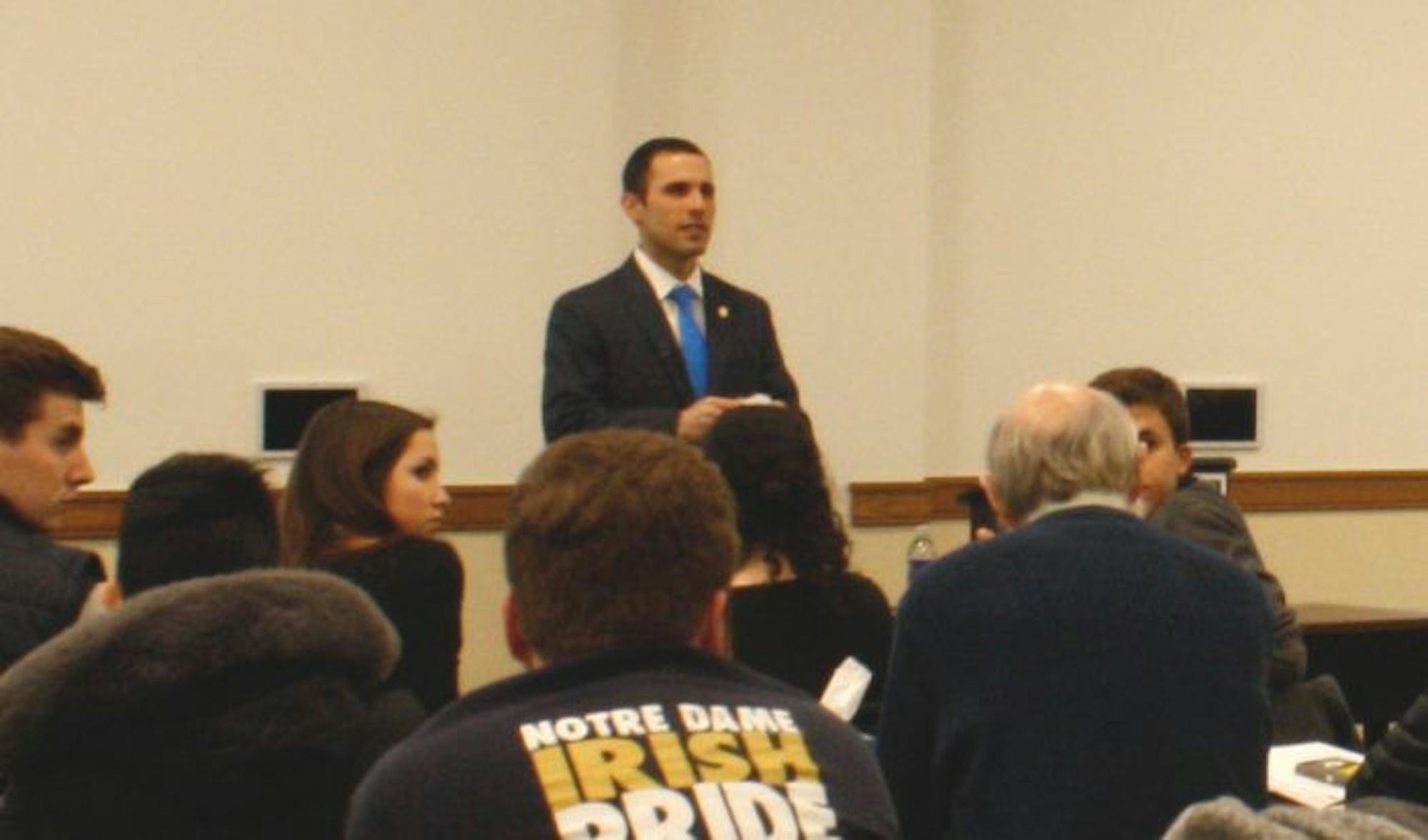Daniel Mark, visiting fellow with the Constitutional Studies Program, called for a defense of religious freedom in the face of global and national threats during a lecture Thursday.
“We have before us the underlying question of whether people have the right to choose and live their faith free of interference by the government or whether the limits of religious freedom are determined solely by judgements of prudence such as whether encroachments on religious freedom will detract from a state’s international standing,” he said. “In other words, we have the question of whether people have a right to religious freedom in principle or only in practice when it suits the state.”
Mark said he sees a “landscape that is deeply worrisome” when looking at religious freedom today and that he believes religious freedom is a right granted by God.
On a global scale, Mark said totalitarianism, both religious and secular, threatens religious freedom. Mark cited Saudi Arabia and Iran as examples of this totalitarianism.
“What critical to remember about those places is that the problem isn’t just religious freedom for minorities; it’s religious freedom for everyone,” he said. “ … [No one] is free to dissent or change or deny … The theocratic ways of these countries deprive the entire population, not just minorities, of religious freedom.”
To have religious freedom, Mark said everyone must have the freedom to choose which religion to follow.
“Religious totalitarianism ultimately aims to control the entire person, even down to one’s thoughts,” he said.
Mark said the other global totalitarian threat, secular totalitarianism, “fears the true God” rather than “false gods.”
In secular totalitarianism, Mark said, countries such as China suppress religion in the name of security.
“In these countries, through elaborate systems of registration and approvals, the governments regulate and monitor all religious activities,” he said.
In the U.S., Mark said, we must be grateful for our religious freedom and be vigilant in defending it.
“We’re not inherently better or more deserving of religious freedom than anyone else in the world, and we should not take our good fortune for granted,” he said. “Rather, we must work hard to preserve the cultural and political and legal conditions that make religious freedom possible … We should neither exaggerate our problems here and forget how good we have it, nor should we exaggerate our blessings and neglect our defense of religious freedom.”
Mark said the threats to religious freedom in the U.S. from the left are “more obvious and better known.”
As an example of one recent trend, Mark noted that the fastest growing religious group in America is the “Nones,” or the people who do not identify with any religion on surveys.
“My concern about this trend is that people who do not value religion are unlikely to value religious freedom,” he said.
Mark said the underlying idea of many actions on the left “rejects anything that stands in the way of radical personal autonomy, not only to choose unrestrained what we do but even what we are.”
“Having abandoned the proper grounds for human rights in order to make room for the ever-expanding list of demands, they’ve left the concept of rights so thin and so watered down that the very idea is in danger,” he said.
In the U.S. on the right, Mark said there are two threats to classical liberalism, otherwise known as modern-day American conservatism. One of these is the alt-right, which Mark said represents a form of “identity politics that rejects the inherent dignity and equality of all human beings.” The other, Mark said, is a group of critics within the conservative movement that rejects classical liberalism and believes American democracy is “fatally flawed and bound to fail.”
While he said the ideas of classical liberalism must be balanced with other values, Mark said individual rights are still important.
“Is [classical liberalism critics’] goal to build a newer, better, likely smaller Christendom, or is their goal to create just enough space to build a Christian culture within a classical liberal world?” he said.
Mark said he believes virtue and religion are necessary in today’s world. Citing a difference between liberty (“the freedom to pursue the good”) and license (“the freedom to do whatever you want”), Mark said the right to religious freedom must be grounded in the good of religion.
“Once we know what is truly good for our nature, what is truly part of human flourishing, then we can know which rights are real and which aren’t,” he said. “ … Religious freedom is essential to the good of religion because in order to be genuine it must be freely chosen. The rights protect the goods.”













